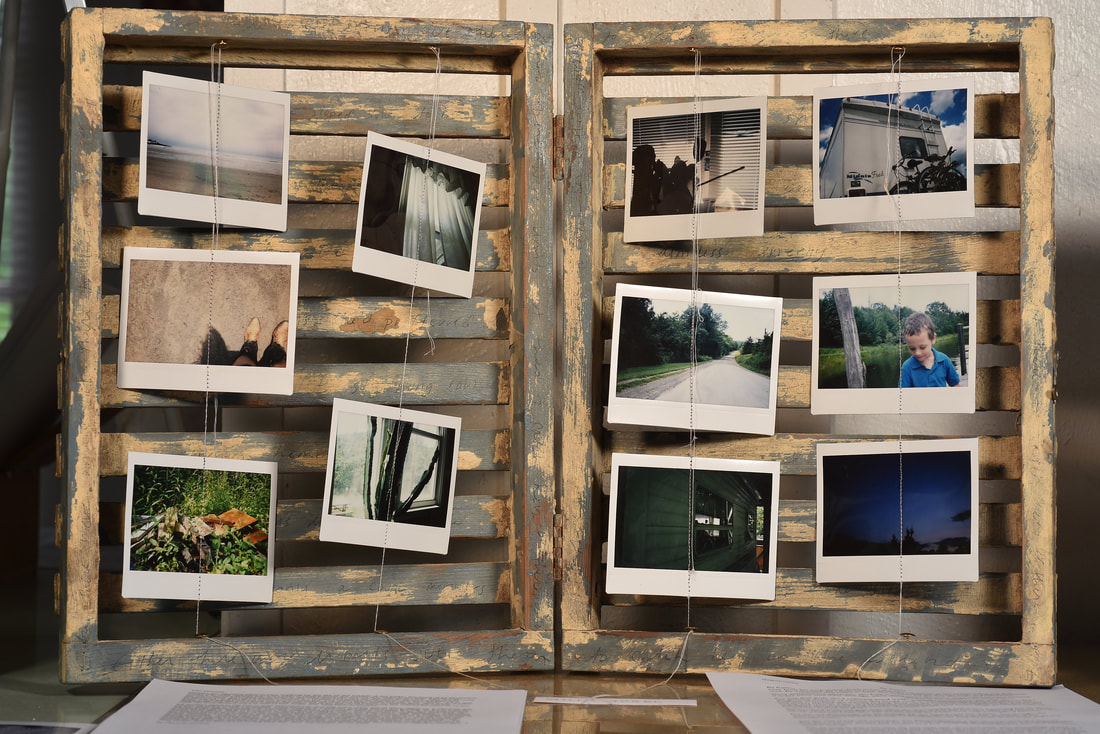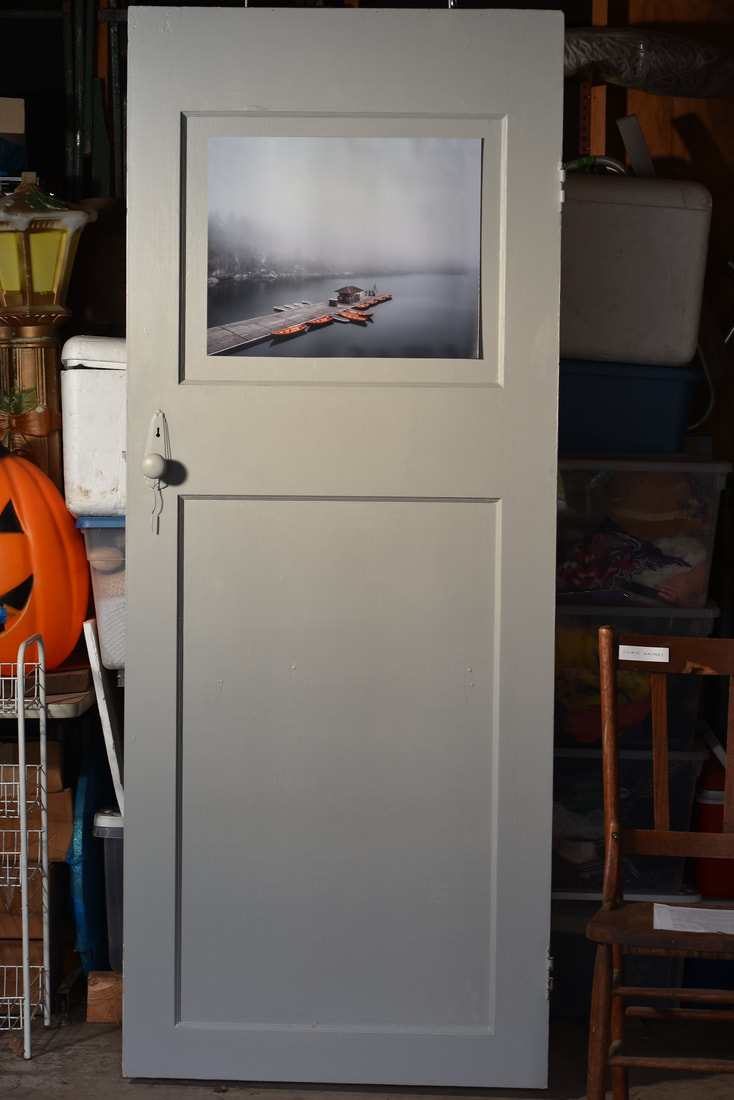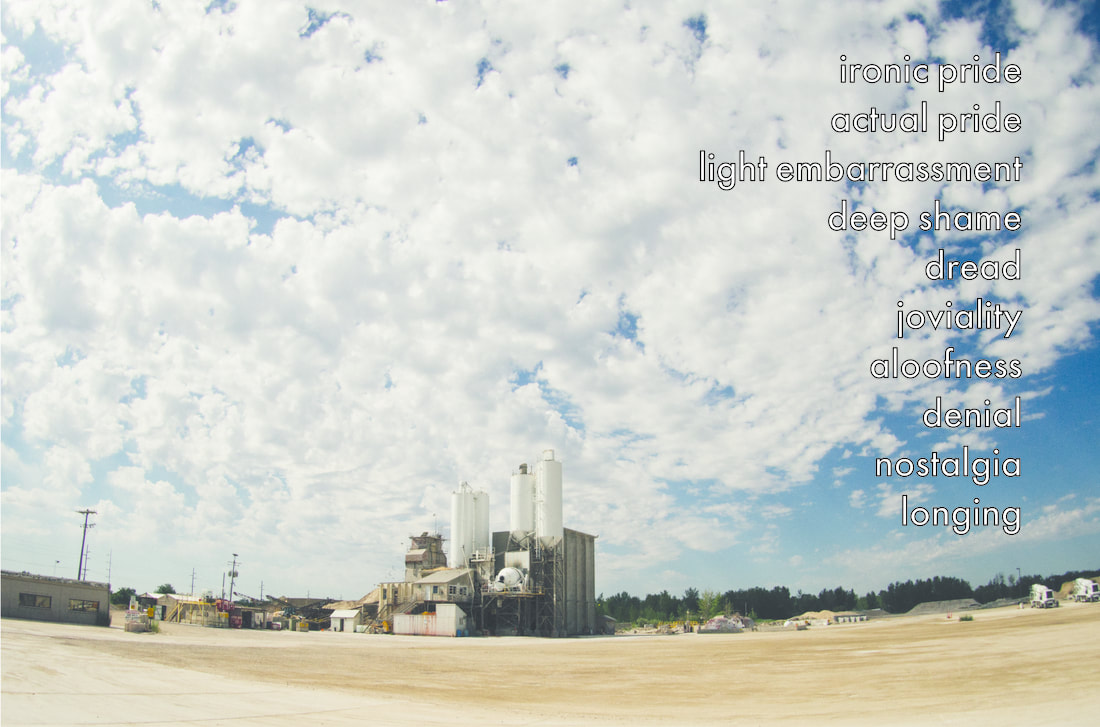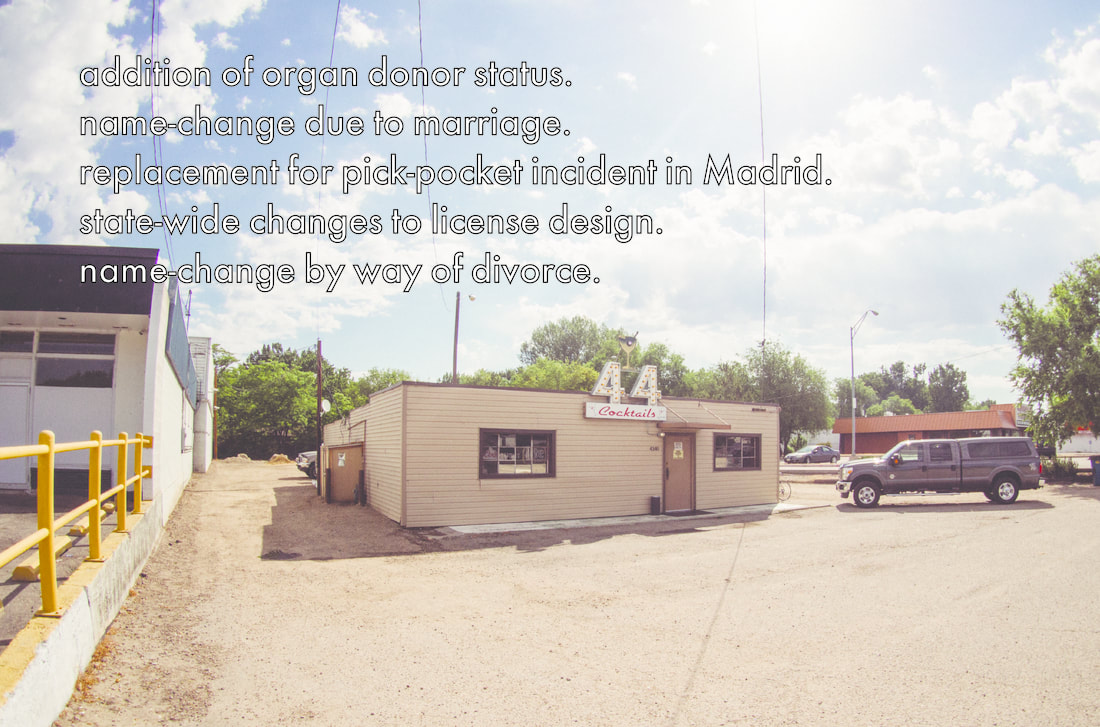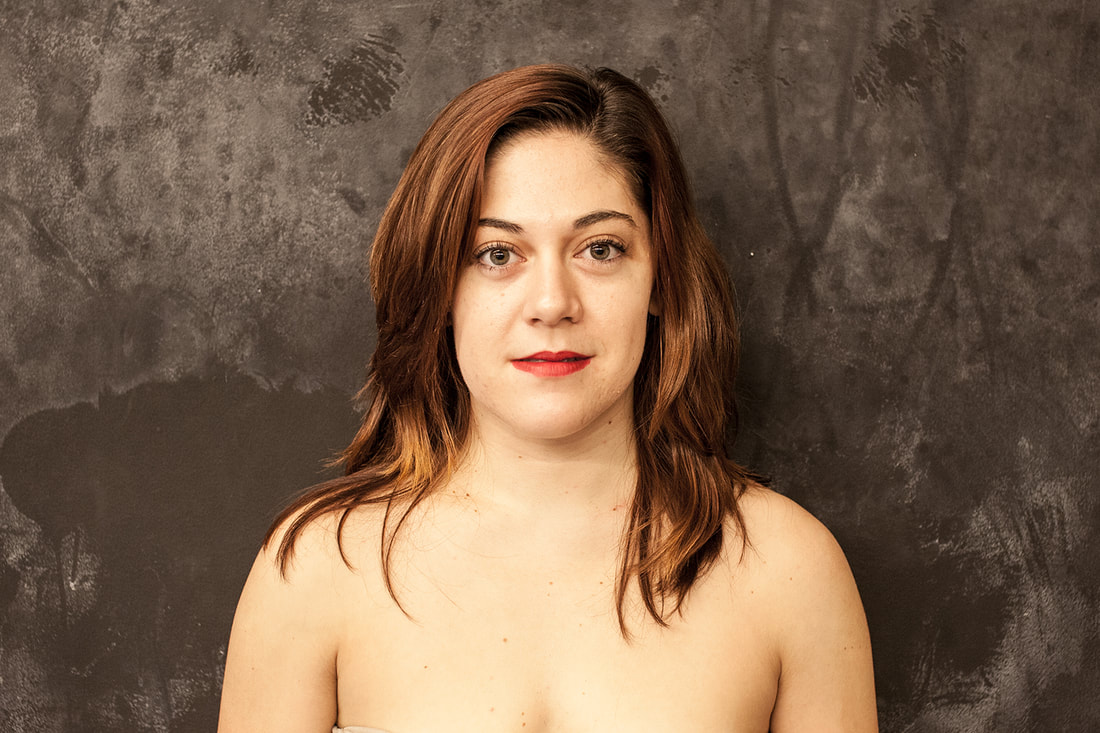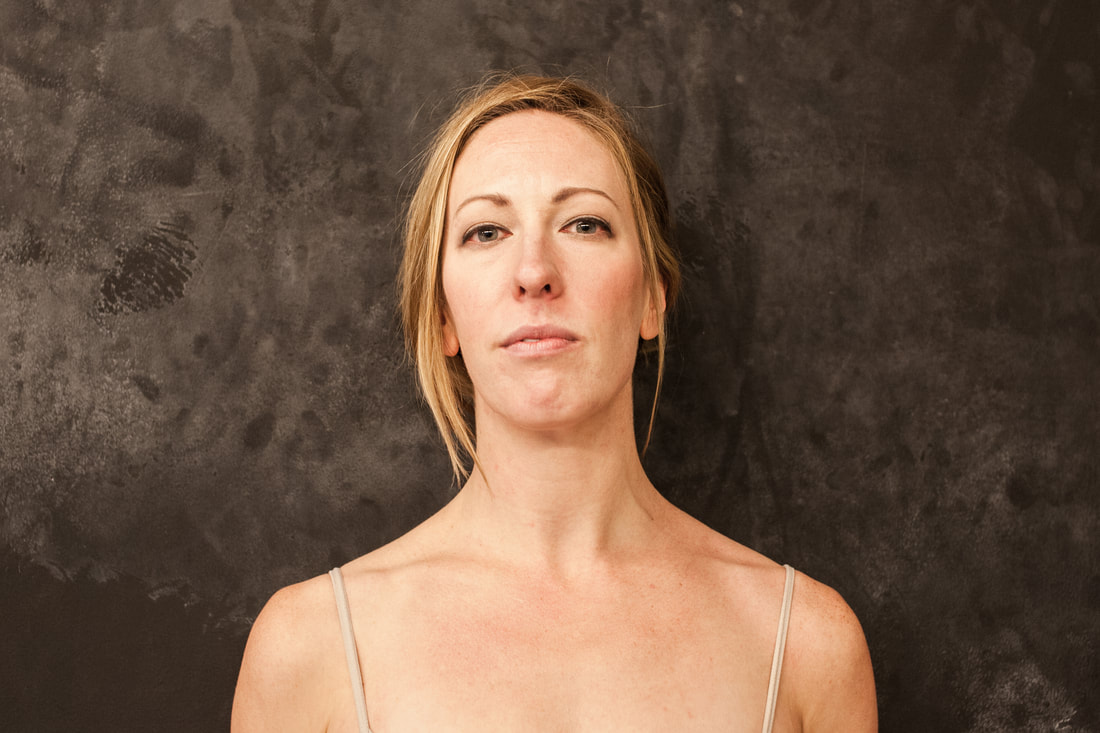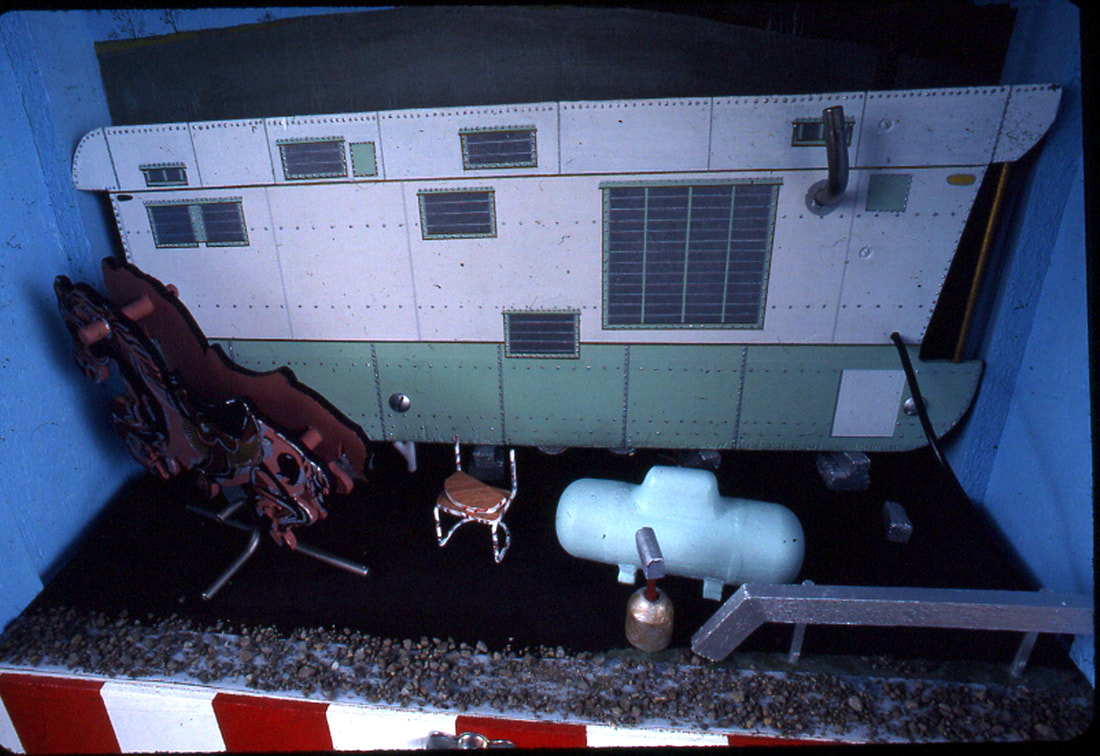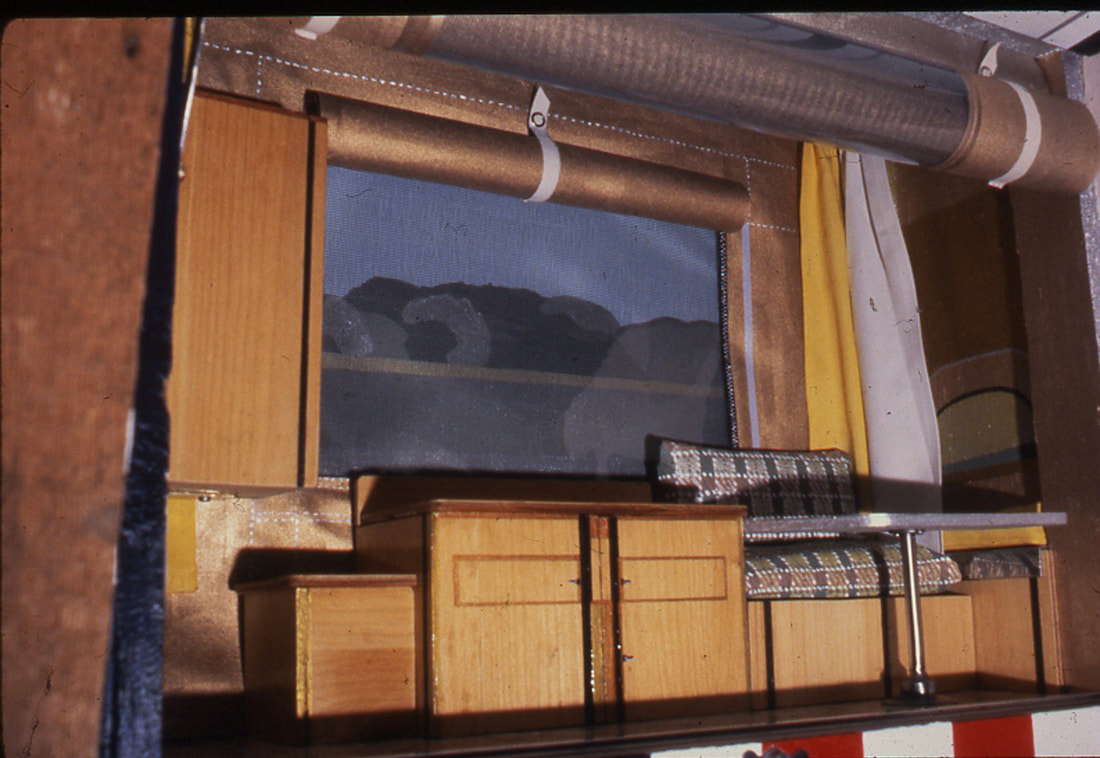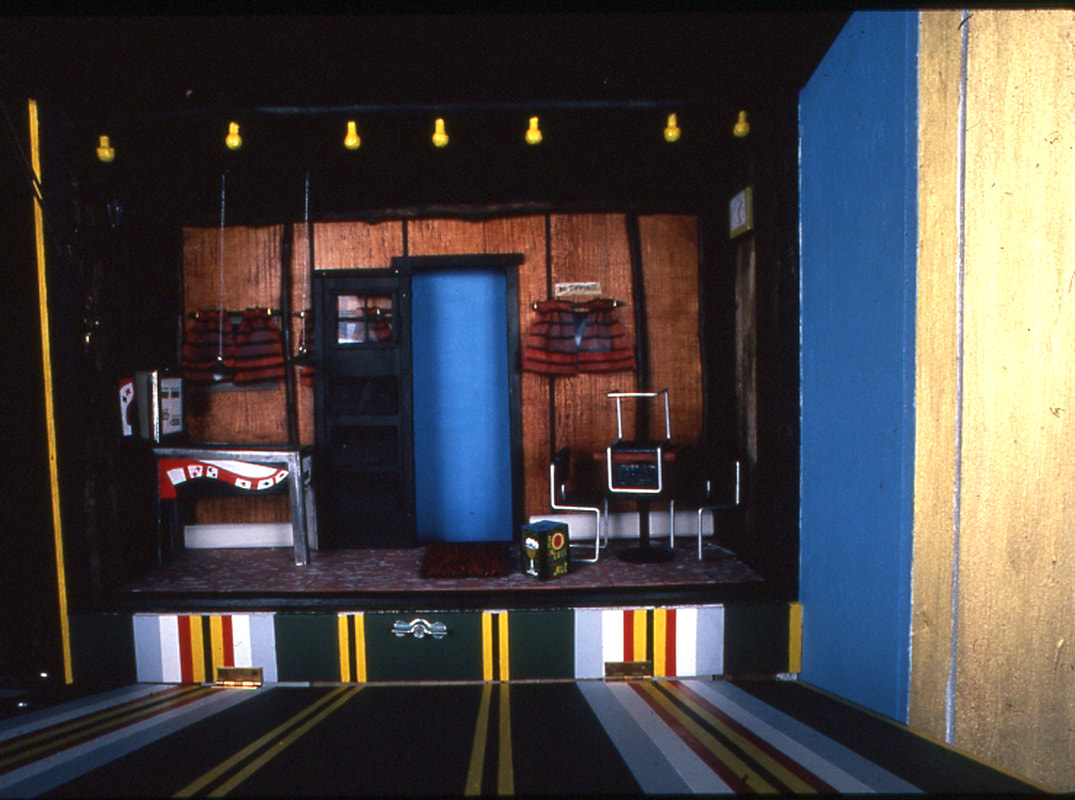|
Made in a Trailer Park I remember the broken years you lived in that rumpled land submarine someone else had run aground at the park behind the drive-in. The faded green trim. The once upon a time white, a wind-buffed shade of bone. I remember how we would make up stories of all the lives given to it, lost to it, as if that dented trailer were a ship night-mangled on a reef of failed dreams, again and again, over the years before you and your mom pieced it together for your own doomed voyage, which seemed destined to leave you stranded there. I remember the way your mom rigged up that shower out back. Those three shivery buckets. The way you squealed from the cold, even in summertime. I remember the way she would rinse between double features. The glow from the giant screen filtered through the two small windows of your home, brightening her shoulders as if she did have stardust, as if she might have been a washed up, washed out, shooting star. I remember all those movies. The hollow sound of the tin roof beneath our feet as if the world might swallow us whole. The day that hail storm pinned you down for hours, as if trying to break through, trying to break you. I remember how you swore you’d get out. You’d wash your hands of that place, of that life. Here it is all these years later, someone else catching sight of you from that not quite collapsed abode. A girl, maybe, on the one-eared rocking horse you left behind, corralled in the stony yard. A mom, or dad, or aunt, maybe, looking up from a feeble kitchen chair plunked by the new water hookup, watching your massive face, that long ago ache in your eyes something you have turned to gold. No one even noticing the rotted corner of the big screen. Peeling layers of paint. All they see is the tear you have trained to run down your right cheek. As if you have channeled some part of you that never got out, that never truly got away. by Lafayette Wattles Video by Meg Willing
By Texas By Kansas, her neck sloped down to her shoulders as gently as the prairie rolled out and away from the road. By Oklahoma, her heart was a plateau she was ready to push everything over. By Texas her skin began to peel. She stopped for gas and almonds and sunscreen. She’d wanted it her whole life. She built it once when she was a child, and had been revising it in her mind until three days ago, when she signed over her Tercel as down payment. For that first draft, she’d collected wood scraps from the construction site next door – from the growing skeleton of a house that would soon harbor the freckled shit-wad who would publicize everything she wanted to keep from view, so that her life became a series of deeper and deeper retreats. Then, in a Dumpster behind the JoAnn’s, she found scraps of linen and burlap and vinyl that she used to cover the miniature windows, to upholster the tiny bench seat where she dreamed a real version of herself would read books while mountains rose up behind her, behind the glass. Always, she’d preferred gray days when the sky hung low and heavy, hemming her in. When she was twelve and needed x-rays of her mouth, they’d lain her on a table and spread a heavy smock across her body. She was disappointed the x-rays took only a couple of minutes. For the real Winnebago, an ’06 Voyage 34, she signed over her Tercel, and thought the chances were fifty-fifty that Jeremy would take care of the monthly payments as the statements arrived in the mail, until he heard from her. Did the hope in his brain make her love him more? The gas was cheap, the sunscreen was Banana Boat, and the almonds were dry-roasted. The boy who took her money had the same indestructability of her own son; she would have hated him before she became mother to a boy. Now all she had was her love and this other, aimless energy. The air outside was cool. The sky was wide and open and pink. The Winnebago ticked as it cooled itself and she counted off seconds between ticks to see if they occurred at regular intervals. Have the humility to learn from others. She did love her strange husband, who took so much more than he could ever see for granted. Her phone rang in the glove box. It hadn’t rung as much that day as it had the day before, or the day before that. And its tone had changed. She let it stop ringing then took it out of the glove box and turned it off. Either there were limits out there to catch her, or there weren’t. She watched the boy watching her through the window, though with the sunset reflected in the glass, there wasn’t much she could see about his face. by Meghan Gilliss Photos & installation by Willa Rose Vogel
BREAK dusk separates night and light like spoiled milk with my bare-shouldered body—I am done our love an uneven table our love a pillow of soft mites by Meg Willing Plaster cast (of Heather's back), choreography, and video by Heather van der Grinten
Two Pictures Despite the elbowed exhaust pipe reaching for the sky on the outside of the trailer, the smell of bacon grease mixed with stale cigarettes hits the back of Cindy's throat the minute she walks in the door. Flimsy and crooked, the door swings out, and hangs opened behind her. She can see into every room from the doorway. No one is there. She takes three steps to the back wall and looks out the window above the frayed and flowered couch. But the backyard is deserted… Robbie's rocking-horse stands to one side, flanked by a broken stool. It feels like a sucker punch to the gut, how much she misses that kid in an instant. A few feet away, the welding torch sits on the ground abandoned next to a large metal storage tank. She thinks maybe that's a sign Ed will come back soon. But she can't stand the smell inside, so she walks back out the dilapidated door to sit on the cinderblock steps. She'll be able to see his truck the minute he turns on to the road. So if he doesn't want to talk to her, tough shit. He'll have to anyway. Ed shuffles along in the line of guys punching out. And like every other one of them, lights up a cigarette the minute he walks over the threshold. They grunt their goodbyes and fan across the parking lot, Ed in a beeline for his rusted out F-150. He doesn't bother locking it – who would steal this heap? But still, he's surprised to see the large yellow envelope on the seat. Left where he couldn't miss it. He picks it up, and swings himself in behind the steering wheel. He turns the sealed envelope over – but there are no markings on it. Still, he knows Cindy left it. Back in the good ol' days, Cindy used to leave him love notes, little presents – a handful of beef jerky sticks, once in a while a paper plate of brownies covered in aluminum foil. He always suspected the sweets were just her way of winning over Robbie. Ed rips open the seal, and finds an 8 x 10 photo. She's facing straight into the camera. But with eyes that seem to be looking inward, at her own thoughts, instead of at him. Her hair, her skin, her lips, all the color of honey. The image is nearly life-sized – just her head and strong shoulders – bare except for two flesh-toned spaghetti straps. Her hair is pulled back, but long loose strands frame her face like always. It looks like she posed in front of the blackboard in her classroom. He pictures her propping up the camera, then closing the door and taking off her sweater to stand there in her undershirt like that. He studies the way her one front tooth overlaps the other, just the tiniest bit, so that it almost shows between her slightly parted lips. And those pond green eyes, like summer calling to him after a long winter. She is daring him to still love her. And, the trouble is, he does. By Rhonda Morton by Christina Morris
**Special note: Sarah Foster chose to be both a writer AND a collaborator, so it made sense to layer these collaborations together as follows:
Megan Grumbling, writer + Sarah Foster, collaborator (dancer) Sarah Foster, writer + Simon Bjarning, collaborator (musician)
Starlight: A Choreographic Soliloquy
The essence of the dance is mint. The dancer enters, on finger-points, from above the trailer. A cool, shivery touch. Optimism and goosebump. Innuendo. The dancer’s fingers ever so lightly graze the surfaces – trailer, broken chair, rocking horse. A quivering bourée downstage. Peppermint, wintergreen. Starlight. Stella. Stella! The dancer gives a quivering shake. A beautiful, scintillating shudder. Like jazz hands. Like Pentecostalists seized with God. The shuddering is meant to express mint. The flash of her hands, palms open, Starlight. The sudden stoic whites of her eyes. Highway and Canyon. Her character lives in the trailer, waters the stones, checks the mail, paints peppermint stripes on the yard’s breakages and ends. Horizon. Her stoic whites of eyes, of course, are off-stage. The meta-proscenium. But it’s a distinction without a difference. Highway and Canyon. Off-stage, above the proscenium, the dancer widens her eyes. Horizon. Winks. That wink is not in the choreography. And yet it is true to the spirit. Mint. Optimism, innuendo, Highway. She is a good dancer. She can improvise. The dancer delicately spider-crawls up the trailer wall. And though the dancer has her choreography, the rules are loose. She has choice in her fingers. Even in her eyes. I've written it in, her choice. She can elect to wink. She is not a tiny dancer. She is quite tall, actually. Her hands in the yard. As tall as the trailer. When she reaches down into the yard, it is not like the hand of god; it is better: the hand of a dancer. The dancer improvises, with one finger, against the rocking horse. She does not ride the horse but rocks it. One finger. It conjures a certain kind of cowboy, a certain kind of yeoman farmer. Bootstraps, Fruited Plain. This choreographic theme is called Hope: The dancer stands two fingers on the chair and raises her pinkie and thumb. The dance is all about conjuring. Discovery. Optimism. See, how she checks the mailbox. With one finger, the dancer taps the mailbox, three times. Three times, like a knock. From her palm, magician-like, appears a small stone. She puts it with several others on the ground. She is building a wall with the stones. A sort of wall, anyway. Really she just waters them. But now it is tomorrow, and something changes in the dance: Today, no stone will come in the mail. The dancer taps the mailbox, reveals an empty flash of palm. Not a pebble, not even gravel. And the next day. Taps, flash-of-palm, empty. Beat. Again. Not even sand. Nothing to put in the wall. Nothing to water. Every day until now there's been a stone come in the mailbox. And so is it a kind of a political show I have choreographed, a political dance? How the stones keep arriving until they don't? The wall that is sort of a wall? How only one dancer can ride the rocking horse at a time, and even then, only with one finger? Both the stones and the dance seem so much smaller onstage. And bigger. The grandeur, the squalor. I’ve written dances for a lot of shows – music boxes, grange halls, but this one I can't quite get a handle on. Comedy or tragedy? You can't tell from the music; such a pastiche. Maybe it's not really a political dance at all. Maybe it's all about the body. The body in space. The dancer traces a finger up the stage-right wall, then leaps her palm to the far wall, clearing the horse. She dances it well, with abandon, minty ecstasy. Starlight Optimism. It's not easy. The syncopation, the compartmentalization. But it's beautiful, too, and when she hits it just right – the leap, clearing the horse, the gas tank, the grandeur, the squalor – stones or none, well, it just must feel so good in your body to pull off that kind of leap. And this set she’s leaping over, the setting of the dance. This trailer, that is. A trailer, wintergreen green. A symbol? A screen? A scrim? Perhaps the dancer herself is uncertain. Is the trailer a grotesque or an idol? Perhaps it is Schroedinger's trailer: Until you open it up, it is both. This choreographic theme is called Cognitive Dissonance. She moves on a line. On a point. Spins. Is she an electron? An angel? You can see from the candor of her dance that the dancer doesn't want to condescend to the trailer. She doesn't want to be precious. She doesn't want to use fairy dust. Everyone involved in the dance has had to contend with the problem of representation of the trailer. Is it a symbol? A scrim? A jack-in-the-box? The secret passage? A pasteboard mask? At some point, someone is going to have to knock on its door. The place I live, it's small too. Doesn't everyone live in a small place? It's called a body. A Body, this choreographic theme is called. The dancer moves at a slow 3. In a wave. This one, Society. She moves at a 6. In a writhe. This one, Grief. She moves at a 1. Limp. Her character has heard that the stones are really pebbles. That the stones are only gravel. That the stones are sand. Will the stones come again? The dancer holds her fingers poised near the mailbox, waiting for the next bit. I'm not sure I remember this next bit. The dancer starts to tap the mailbox, but hovers. Gives a quivering shake. Grazes the surfaces of trailer, broken chair, rocking horse. I have choreographed her movements. But she must dance them. Her fingers, her hands. Her lips, brows, eyes, high above the proscenium. The moon of the dance, so to speak. The stars. A kind of Starlight. A most beautiful light. Horizon. Even when it is only on a stage, only a dance. This whole show, truth be told, is more than a little hypothetical. A work in progress. Let's call it an experiment. Horizon. She widens her eyes. Tingling with spin, gravel, and mint. Optimism Like jazz hands seized. An unpredictable experiment. A knock on the door. But maybe, possibly, a great one. by Megan Grumbling The Dance is Mint from MoveWorks on Vimeo.
Reader: Douglas Milliken
Dancer: Sarah Foster
Original music, "Ours" by Simon Bjarning
in response to: Maybe I should just sit here. Maybe I should just wait for it to happen. I stop jumping. I mutter under my breath words I wouldn’t say in front of my mother. My not-so-carefully chosen clothing barely covers my thighs. I become acutely aware of a sticky film of sweat underneath my knees. Water starts to drizzle through, under the edge of the window grate. The overhead florescent lights flicker and make an intermittent buzzing noise. Like the sound of distant cicadas on a dewy night, somewhere in the South where the trees are bigger than they should be, with low hanging arms covered in lace. My arms feel heavy. I’m too lazy to hold them up. Maybe if I had done it differently. More determined - or from a different angle. This would have gone by faster. If wall clocks were still a thing, I’d watch the passing of the seconds. Every new moment eats up the past. Like a sewing needle poking through tough fabric, over and over again. Poke. Poke. Tick. Tock. But I don’t have a clock, just a ventilation pipe. My jaw tenses. I plunge my weight into the chair and push it to the corner. The back fell off months ago. That’s one of the reasons why I did what I did and why I’m doing what I’m doing. Too many broken things here. I tried to repair this sad little chair the way I repair everything - with candy cane striped tape and a good pun. I have many years of experience with inanimate objects - and the one thing that I know for sure is that they appreciate levity. Then I remember Pone, my beloved rocking horse. He sways reluctantly in the corner. His mechanical black eyes speak of many lives lived and his rusty joints squeal of abuse. I know he wants to know why we’re sinking. Why I allowed a perfectly fine mint and white motorhome to slide into my neighbor’s lake. Why I avoided Charlie and Yvette’s dinner invitations. Why I stole so many wrenches from the local hardware store. Why despite the tape, and the wrenches, and the jokes, and the fake repairs, we are still sinking. But it’s too soon to explain anything to anyone, especially a rocking horse. For all I know, we will be floating here forever in an endless circular river. I tell him, in my most caring voice, “don’t spell part backwards, Pone. It's a trap.” That’s one of his favorites. His laughter echoes against the outer walls, waves striking a tin roof. I read once, in a very smart-seeming book, that you can control your emotions by controlling your face. If I hosted a dinner party, that’s what I would talk about to entertain my guests. Then I’d make everyone at the table experiment with it. I’d tell everyone to make angry faces, and Charlie and Yvette’s brother would start screaming at each other. I’d tell everyone to make frowny sad faces, and Joelle would sink into her chair, watery-eyed. I’d order a chorus of hyena laughs and we’d all be best friends forever. I smile at the thought. I smile hard. And not just with my lips, but with my chin, and my eyes, and my teeth. Especially my teeth. To match my body to my face, I take a wrench in one hand and walk around the perimeter of the room, slapping my bare feet on the linoleum and lifting my knees high like a soldier. A joyous dance to match a joyous face. I bang the wrench on the hot water tank and I spin and hop and spin and hop. I shimmy left - I shimmy right. Joy boils in my flesh. Then the floor drops below me. The walls moan around me. I crouch down and back up against the wall. I drop the wrench. I insert my index fingers into the creases of my knees. I find comfort in the slick proximity of skin on skin. The small window by the ceiling has darkened. Water seeps in along the upper edges. A pool of liquid creeps up from the lowest part of the floor. I hear it coming. I wait. And smile. by Sarah Foster
BONUS! Sarah also brought a version of her writing with a short set of instructions for a willing volunteer to improv a short piece. Rhonda Morton (also a writer) volunteered:
I've Never Done This Before from MoveWorks on Vimeo. Skipper Madison Roberts had been trapped inside her sister’s camper since 1977. Emerging from the time warp required a period of reorientation to a world that had aged forty years in the flick of an eyelash. How had she gotten here? Barbie’s younger sister, Skipper made her own friends, Skooter and Ricky, because Barbie spent more time with Ken and grew more interested in making babies than babysitting her tween sister. That June in 1977 they had gone to the beach on Lake Michigan near Manitowoc and spent a weekend playing inside Barbie’s camper. Skipper, Skooter, Ricky, Ken and Barbie and their beachcomber recreational vehicle belonged to two sisters, Jane and Julie. As the elder sister, Jane had acquired her Barbie dolls new and Julie got her hand-me-down dolls when Jane was ready. When Jane and Julie went with their parents on a summer vacation to Wisconsin, they played in the sand dunes along the western shores of Lake Michigan. They brought their Barbie dolls and camper and dressed them in summer fun outfits and seated them around the formica table. Jane pulled back the draperies. Julie rolled up the window screens and let the summer breeze come through the mosquito netting. Jane laid Skipper on the sofa without putting an outfit on her. The midcentury modern design of blond wood cabinets and lineoleum floors gleamed in the bright sunshine. Julie and Jane went swimming, and for ice cream, rode their bikes with Skooter and Ricky in Julie’s pockets and Ken and Barbie in Jane’s. They forgot all about the camper and Skipper on the beach. Without realizing it, they left Michigan without picking up all their toys on the beach. Forty years later, Skipper woke up. Back in her body made of flesh and bones instead of molded plastic. She didn’t have any clothes on but her eyebrows were perfectly applied. Auburn hair hung to her shoulders. Perfectly shaped red lips. Bendable knees. Proportions of bust-waist-hips that weren’t like those of a fake Barbie doll. She was a real woman. In a trailer park filled with other midcentury pre-manufactured ticky tacky homes in a row. by Jill Swenson by Alanna Newkirk
If I had ever thought of the challenges of middle school, the problem I faced would have never come to mind. My first period class, including me, had been informed of the school writing contest. This was a chance to show your true talent. Our quirky English teacher had told our class, hoping to resurrect our dead spirits towards the assignment. I was hooked at the idea, for writing stories is one of my great pastimes. But, for once, I felt as if I was trying to bake a cake with no ingredients. I didn’t know how to start my story. To avoid my constant habit of procrastination, I decided to take a short walk down the hallway. As I entered the long corridor, I was greeted by the brisk, glacier-like air clearing my mind. In a serene state, I stretched out my hand to the paper-white brick wall. It was as if my hand was an oar and my body was a boat, sailing through an ocean of air. Could I possibly be entering a state of enlightenment and inspiration? Nearing the end of the corridor, I felt my hand brush over something rough. The texture was drastically different from the smooth surface of the wall. The wood-like area of the wall was an indent in the hallway, making up a mere tier in an unknown cake of wall. I was surprised that I had never noticed this disembodiment while transporting myself through the corridor. Moving my hand in several full revolutions, I came to discover that the region I was touching moved slightly at its top. This must be a door, I thought to myself. The door must have a purpose, but what was it? Thoughts of childish excitement bombarded into my head like an extra neutron in an uranium atom. This nuclear fission overcame me. Could it be a pipeline of ductwork that led to every classroom in the building? Or was it a portal to another dimension with rainbows and unicorns and clouds made of fluffy cotton candy? Filled with curiosity, I got on my hands and knees, while I prepared to open the door knowing whatever lay behind it would amaze me. Checking the hallway to see if anyone was occupying the space, I decided to proceed, pass go, and collect two-hundred dollars. Well, maybe not the two-hundred dollars part, but something amazing, I hoped. I gave a gentle push on the door. The small board moved through the air like a stealth boat on dead calm water. I crawled through the small entrance, greeted by a dimly-lit room. The motion-sensor light illuminated a small portion of the room, the rest of the space was coated in inky shadows. Taking up the rest of the space were large articles. There were two chairs upside-down that were placed atop a small wooden table. On the other side of the rectangular room, a shower stall and a pinball machine lined the wall. Looking back on that day, I never truly understood how I found a storage closet so intriguing. Thinking of nothing better to do, I took down one of the chairs from the top of the table and sat in it. The cold, firm plastic sent a tickle up my spine. As my awe for the room had floated away like the graceful smoke of an extinguished candle, the thought of the story competition struck me like a snake in the grass. What was I going to do? I pondered over the issues to what felt like a great amount of time. I took a second glance at the articles in the room and several ideas came into my mind. Hmmm… I thought looking at the old, tired pinball machine. Maybe I could enter a story about a man named Ramon and how he met a girl, Stella, at an arcade or a casino, or any place that adults go to have fun. Or, peering at the shower stall, I could write about a naked lady who was murdered in her own bathtub. No, that wouldn’t work, I realized. It sounds like one of the boys in my class would say that to annoy the girls. Could I write about one of my adventures? None of these ideas seemed to work at all. Standing up from sitting at the table, I felt my chocolate wavy hair fall over my shoulders like a waterfall. Then, all of the sudden, I realized something important. Inspiration can come from you inside, not just what you see in the world. With this wisdom, I knew my story that I was going to write would be great. by Sophia McMaster Photograph & installation by Chris Walters
The summer I got my driver's license, I was going through my actively-embracing-white-trashiness phase. At the time, I was styling my hair every day. sunbathing at the gravel pit a mile from my house. working 3 part-time jobs. disregarding my curfew. wearing obnoxiously bright lipstick. sporting jelly shoes, a fuck-ton a bracelets, overly distressed light wash jeans, barely-there tops. Sometimes just a swimsuit. While unintentional, that's how it came to be that I appear naked in my driver's license photo. The pale pink edge of my tube top, barely visible, allowed the exposure of bony shoulders care-free cleavage Since then, I've been through nearly every cycle of emotion toward my driver's license photo ironic pride actual pride light embarrassment deep shame dread joviality aloofness denial nostalgia longing I've seen every type of reaction to my license photo, from friends, family, bartenders, judges, law enforcers and store clerks. Glances: furtive, cautious, incredulous, creepy, mirthful, blank Whistles: sexual, surprise Gestures: Hand-over-mouth, raised eyebrows, held breath, blushing, laughter, choked laughter, adjusting glasses. Verbal responses: Well now. I see, I see. This is you? New licenses have been printed, with the exact same photograph because of addition of organ donor status. name-change due to marriage. replacement for pick-pocket incident in Madrid. state-wide changes to license design. name-change by way of divorce. Today, 15 years have passed since the license was issued. I am waiting in line at the DMV. applying obnoxiously bright lipstick in the reflection of a laminated "NO SMOKING" sign. sporting jelly shoes, overly distressed light wash jeans, and a pale pink tube top. ready for my closeup. By Willa Rose Vogel Images by Arlie Sommer
|
66 OURS - Collaborative Writing ProjectStarting with Phase 1, writers had 66 days to base their writing on 1 anonymous person & 1 vignette, dutifully and judiciously assigned to each writer by Amelia. Photos given to the writersEach writer was given a combination of 1 person + 1 vignette from the following:
Person 1
Person 2
Person 3
Vignette 1
Vignette 2
Vignette 3
Categories
All
|
